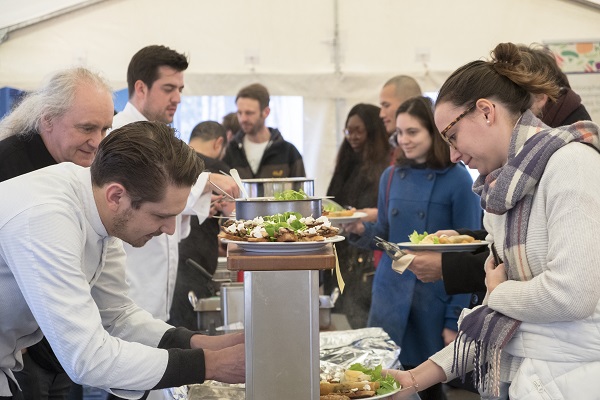 Credit: V Cardile
Credit: V Cardile
CELL – the Centre for Ecological Learning Luxembourg has voiced its opposition to the approach being taken by the Ministry of Agriculture, Viticulture and Rural Development regarding Luxembourg's Food Policy Council.
Thursday 29 July 2021 marked "Earth Overshoot Day", i.e. the date when humanity's demand for ecological resources in a given year exceeds what Earth can regenerate in that year. Luxembourg had already reached this limit on 15 February 2021, giving it an ecological footprint equivalent to eight planets. Food is responsible for one-sixth of this, meaning that actors in the food system can make a substantial contribution to making a positive difference, provided there is concerted action at the national level.
CELL recalled that this is the idea behind a new system of governance of the food system resulting from civil society and research: a Food Policy Council for Luxembourg. Regular meetings took place in 2019 and 2020 between the various stakeholders and Luxembourg's Ministry of Agriculture, Viticulture and Rural Development. The citizen's platform lamented, however, that the Ministry has put an end to this joint development process and will table today, alone, a bill aimed at establishing such a system of food democracy at the national level. CELL argued that this ministerial action would have been welcomed, had this device, which should have been "original and innovative", not been considered in "a reductive and deeply anti-democratic form, emptied of its participatory and civic ambition". As such, CELL has expressed its strong opposition to this "counterproductive approach".
According to the platform, the objective of such a council is to establish a holistic food policy based on food sovereignty: "The very merits of a Food Policy Council is to institutionalise a governance shared with all stakeholders in the food system in order to jointly shape the future of food in Luxembourg". CELL also maintained that, in order for it to fulfill this role, the council should be "a neutral and at the same time critical body in which all participants feel welcome and are encouraged".
In addition, CELL argued that the Agriculture Ministry's project should focus more on climate concerns, as well as equally inclusing all actors in the system (citizen approach.
Above all, the platform lamented that the project had "diverted from its original meaning", i.e. encompassing "a dynamic of bottom-up dialogue which gradually integrates the [various] institutional actors". This is considered important in order to ensure that the avenues worked on within the council respond to the reality of all actors in the field.
After several months of "abortive contribution and cooperation work", CELL expressed doubts over the capacity of the Ministry to "integrate and anchor such a participatory and democratic process" in its bill and in particular in the functioning considered for this food council. The platform argued that the Ministry has "deliberately excluded" actors of society (CELL asbl) and research (University of Luxembourg)", which were at the origin of the first reflections and concrete actions in Luxembourg, as well as the Ministry of the Environment, despite its "proactive" involvement for several months. The Agriculture Ministry has only partnered with the Ministry of Consumer Protection for the current bill.
CELL argued, however, that only close cooperation will guarantee a real synergy of the skills that are relevant and necessary for the development of a coherent food policy, in the economic, ecological and societal fields.
Consequently, the platform has asked the Government Council to:
- use food sovereignty as the basis of the Food Policy Council for Luxembourg;
- not adopt this bill without the consent of the actors concerned;
- give appropriate attention to subjects linked to the climate crisis, the endangerment of biodiversity and the resulting societal imbalances;
- broaden the circle of actors to be involved to include those in the food system, which is much larger than those in agriculture;
- integrate the proposals made at this stage by the initiators of civil society and the research behind the project, particularly in terms of content and the democratic governance process.








